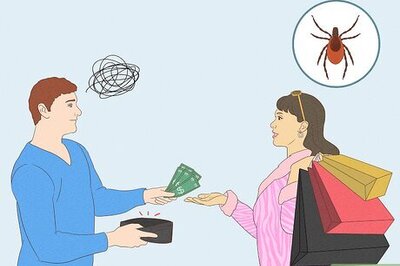
views
The recent LPG cylinder price hike from Rs 440 to Rs 933 may be the biggest shock to the consumer, but the aggregate effect of the price hike on the common man’s pocket is even higher.
The cost of living in the state has skyrocketed at an unprecedented pace, if one goes by the upward spiraling rates of essential commodities in the last 365 days. As a result of costs heading northwards, the average monthly budget has increased by an average of Rs 3,000 to Rs 5,000.
Most of the edible items, including rice, sugar, vegetables, fish and meat have witnessed an increase of more than 25 per cent. The price averages published by the State Department of Economics and Statistics, which monitors the daily prices of essential commodities, shows that one kilogram of ‘matta’ rice would cost Rs 32 in the open market, whereas it was only Rs 26 in 2011. The prices of only a few items like coconut, coconut oil and tapioca have showed a declining trend.
A Keralite’s staple diet would cost between Rs 25 and Rs 32. Though not a very popular item, the price of colocasia jumped to more than double the rate and ladies finger is dearer by 41.67 per cent. Milk, which had recorded an increase of Rs 5 in September 2011 is all set for a hike of Rs 5 from the present Rs 27.57 per litre.
Though the price of tapioca suffered a fall, all varieties of fish, have become much dearer. Sardines at a price less than Rs 80 per kilo will be a tough find and mackerels cost around Rs 120 per kilo in the retail shops. The increase in the fishing expenses, including the rise in the price of diesel and the falling catch from the Thoothukkudi and Kanyakumari areas owing to the protest against the Kudankulam nuclear power plant, have all been contributing factors. The price of chicken has come down from Rs 100 in 2011 to Rs 85 in 2012, but the price of beef rose from Rs 140 to Rs 180 in 2012.
A 30 per cent hike in power charges, effected on various categories of domestic and non-domestic consumers in Kerala, came into effect from July 1. The tariff for consumers went up from a minimum of Rs 0.35 to a maximum of Rs 1.50 while it is Rs 6.50 per unit for consumption above 500 units. The minimum bus fare will be set at Rs 6 and the auto fares are expected to move up to Rs 15 from the minimum of Rs 12. To cap it all, a 6 per cent increase in the prices of liquor and wine has already come into effect from August 1.
















Comments
0 comment